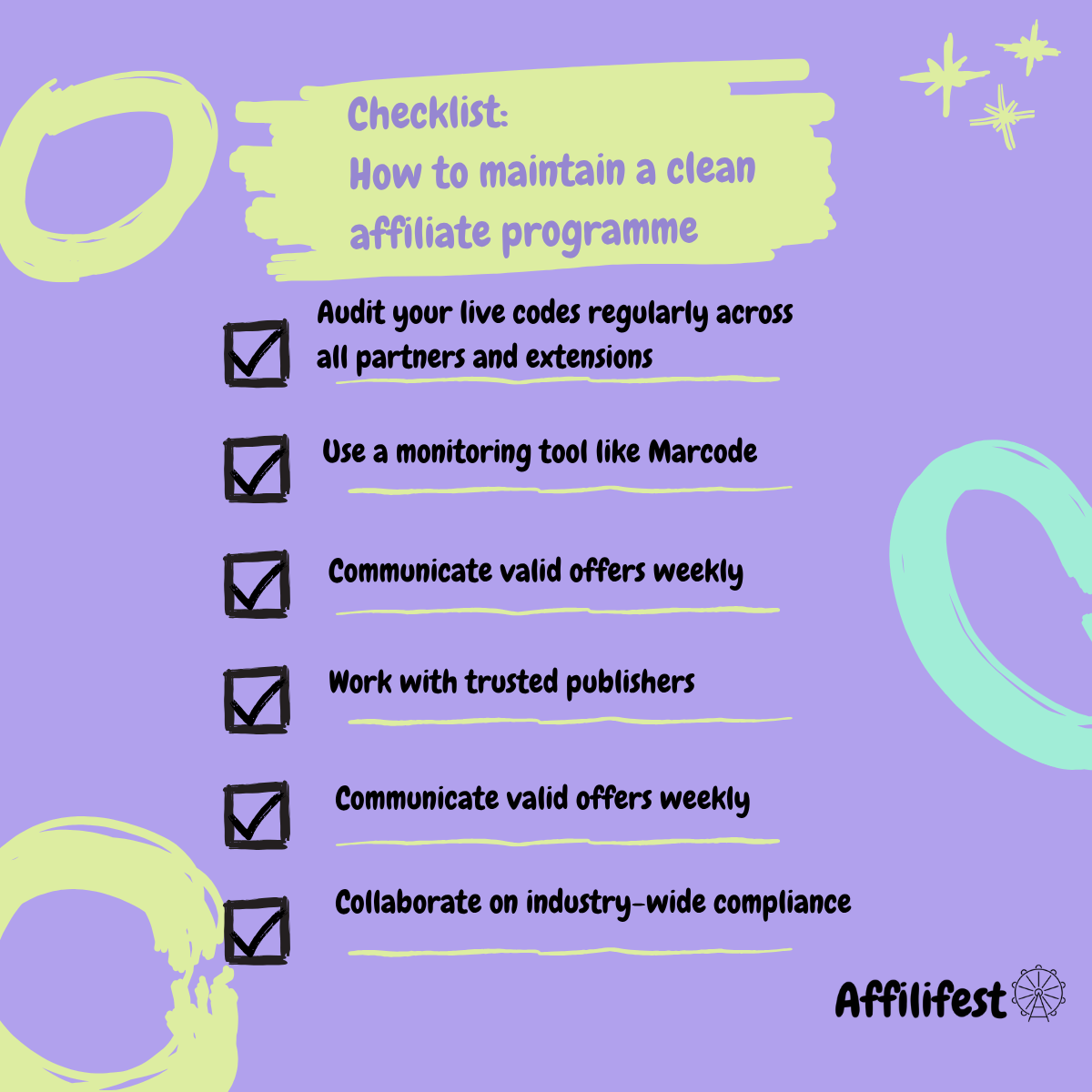Broken Codes, Broken Trust? How Affiliate Marketing Can Fix Its Fake Code Problem

Why Trust Is Affiliate Marketing's Most Fragile Currency
Trust is everything in affiliate marketing and it's under pressure.
Voucher code sites, brand partners and top tier publishers rely on consistent honest experiences to stay credible with both consumers and retailers. When a shopper encounters a fake code it's not just an inconvenience, it chips away at the entire system.
“Trust is the core of our USP” said Alex Appleton, PR Manager at VoucherCodes. “It matters to our users and it matters to our merchant partners.”
Unfortunately the data backs up the problem:
-
54 percent of UK consumers tried to use a discount code that didn't work in the past year
-
39 percent said one bad experience was enough to stop them using any voucher code site
-
Consumer trust in voucher code sites has dropped 9 percent since 2018
If that trajectory continues it doesn't just threaten publisher revenue it risks undermining the channel entirely.
Behind the Curtain: What's Really Causing the Fake Code Problem?
Let's be clear not all code issues are intentional.
Some are the result of:
-
Leaked or guessed codes
-
Scraping from old email campaigns or social media
-
Out of date affiliate pages that don't reflect current offers
-
Unauthorized resellers or cloned domains
But tech is now making it easy to spin up low quality or fraudulent voucher sites often supported by paid search arbitrage and minimal oversight.
“We've seen brands with over 150 codes live and they didn't even run voucher codes as part of their strategy” said Andy Cooney, Co founder of Marcode. “Some were scraped from fake Facebook posts. Most didn't work. It's a huge issue.”
That leads to three critical problems:
- Lost sales from frustrated customers
- Misattributed revenue affecting performance reporting
- Brand erosion in the eyes of the consumer and internal stakeholders
Why Fake Codes Hurt Affiliate Managers the Most
For affiliate managers inside brands, fake codes are more than a consumer problem, they're a reputational risk.
“When an invalid code makes its way to a customer it doesn't just kill that sale, it prompts questions from leadership” said Amy Johnson, Digital Performance Marketing Manager at TUI. “We get pulled into meetings budgets get challenged and suddenly affiliate is on the defensive.”
It also creates inefficiencies:
As Amy noted “We'd rather be in the data or working collaboratively with partners not constantly cleaning up after poor consumer experiences.”
Solutions That Work: How the Industry Can Rebuild Trust
Thankfully the panel didn't just flag problems they offered real actionable solutions for affiliate managers and publishers to adopt today.
1. Transparency and Communication
“VoucherCodes has a code guarantee” said Alex. “We hand check everything. If something slips through we fix it and compensate customers. It's about taking ownership.”
2. Use Technology to Your Advantage
Platforms like Marcode can scan thousands of sources including browser extensions PPC ads and affiliate pages to flag fake or unauthorized codes in real time.
3. Collaborate. Even With Competitors
“This isn't about perfection. It's about progress” said Angus Drummond, Senior Director of Publisher Strategy at Acceleration Partners who moderated the panel. “Even as competitors we need to work together to raise the standard before external bodies impose it on us.”
Supporting cross industry bodies like the Affiliate and Partner Marketing Association (APMA) can also create common frameworks for integrity and trust.
SEO and Google: Why the Search Landscape Is Making Things Worse
The panel also explored how SEO and paid search dynamics are adding fuel to the fire.
While Google has promised better reporting tools the burden currently falls on brands and affiliate partners to monitor and clean up the landscape.
One Final Thought from Each Panelist
🛠️ Andy Cooney, Marcode
“There's leakage in almost every programme. And that leakage leads to fake codes which leads to lost trust. You have to act.”
🧩 Amy Johnson, TUI
“Transparency is everything. Pick up our newsletters. Let us know if something's wrong. Let's fix it together.”
💬 Alex Appleton, VoucherCodes
“This isn't about blame it's about responsibility. Every publisher has a role to play in fixing this.”
🔁 Angus Drummond, Acceleration Partners
“If we don't raise the standard ourselves someone else will do it for us.”
What Affiliate Managers Should Do Next...
If you manage an affiliate programme and want to stay credible protect revenue and retain customers here's your to do list:
✅ Audit your live codes regularly across all partners and extensions
✅ Partner with platforms that monitor for misuse like Marcode
✅ Communicate weekly with publishers about valid offers
✅ Back legitimate publishers who maintain compliance standards
✅ Collaborate even when it's inconvenient to create an industry standard
Conclusion: Trust Is Everyone's Job Now
Affiliate marketing has always been about partnerships. But partnerships without trust break down fast.
The fake code problem is real growing and solvable. Brands publishers and platforms have an opportunity right now to work together clean up the space and restore confidence.
Do that and affiliate won't just survive economic pressure. It will thrive.
)
)
)
)
)

)
)
)
)
)
)
)
)
)
)
)
)
)
)
)
)
)